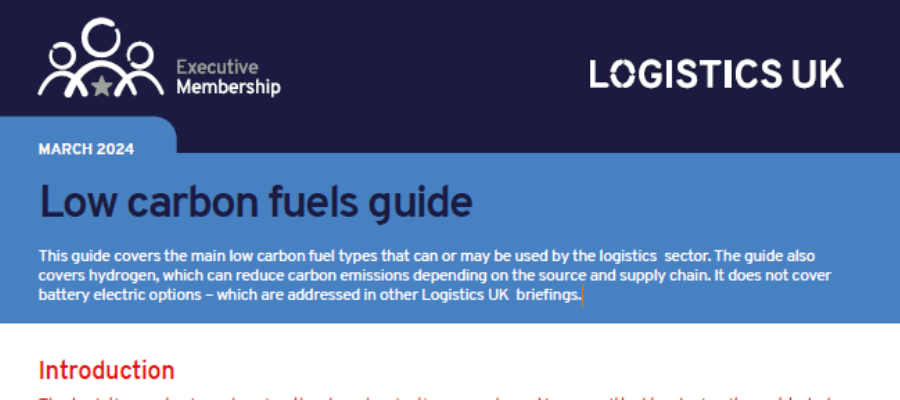🕒 Article read time: 2 minutes
Logistics UK publishes Low Carbon Fuels Guide

The logistics sector is embracing the decarbonisation agenda and is committed to playing its part to help the UK achieve net zero.
However, whilst industry awaits the development of zero emission technology for long-distance HGVs and rail (on non-electrified lines), and alternative energy sources for ships and aviation, Logistics UK is calling for sustainable low carbon fuels (LCFs) to be incentivised to increase their adoption, given their availability to reduce greenhouse gas (GHG) emissions immediately.
Logistics UK has produced a Low Carbon Fuel Guide, which covers the main LCF types that can be used by the logistics sector and simplifies applications, typical GHG savings as well as benefits and disadvantages. The guide delves into feedstocks, vehicle modifications and infrastructure needs, as well as cost comparisons to help stakeholders understand the market.
It also includes our policy asks, calling for: Greater incentivisation in the tax system to increase their adoption. LCFs must be competitive with diesel and kerosene. Incentivisation should include the development of a Hydrotreated Vegetable Oil (HVO) differential, alongside the existing gas duty differential, decoupling the price of biomethane from wholesale natural gas prices and support from the government for the sustainable production of LCFs including sustainable aviation fuel (SAF).
A long-term strategy for LCFs across the economy that makes strategic decisions over infrastructure, manufacturing and which fuels would be best used by which industries, given the likelihood of scarcity of supply driven by international demand. This strategy should be evidence-based; keep the cost of logistics down; consider the carbon emissions impact of the whole fuel lifecycle; be backed by investment in infrastructure and R&D; and by a clear regulatory framework.
A halt to proposed changes to the Greenhouse Gas Protocol (GHGP) that would mean companies would no longer be able to report the benefit of using biomethane in their truck fleets and would have to report as if they were using fossil natural gas which has only a small carbon benefit over diesel.
The guide can be viewed here.
Published On: 28/03/2024 16:00:00
